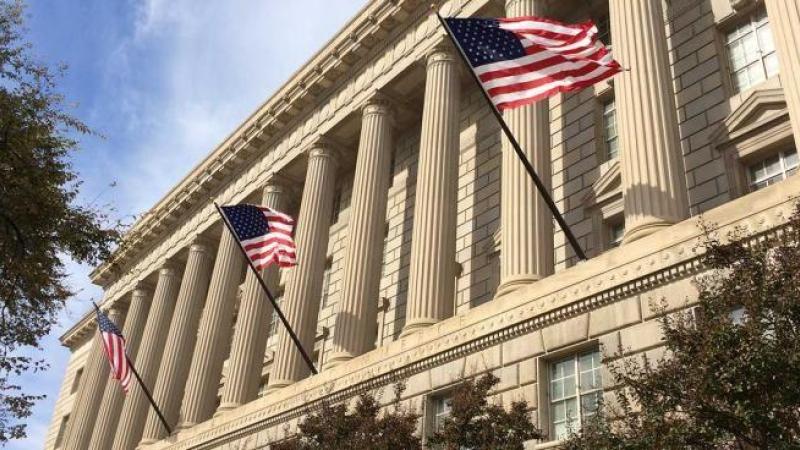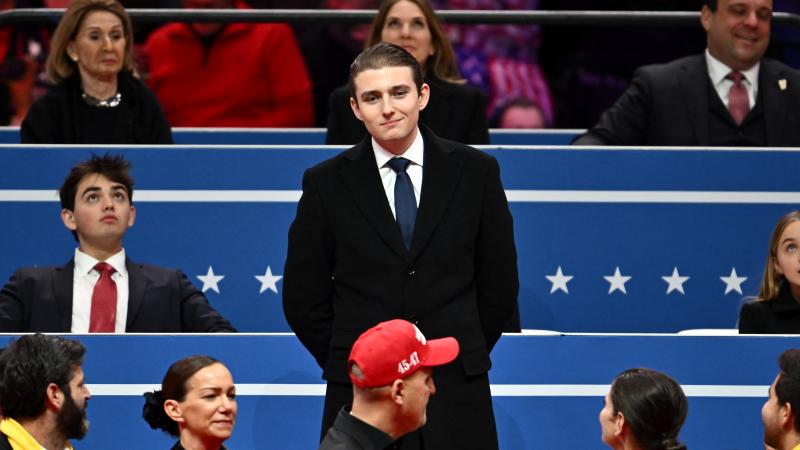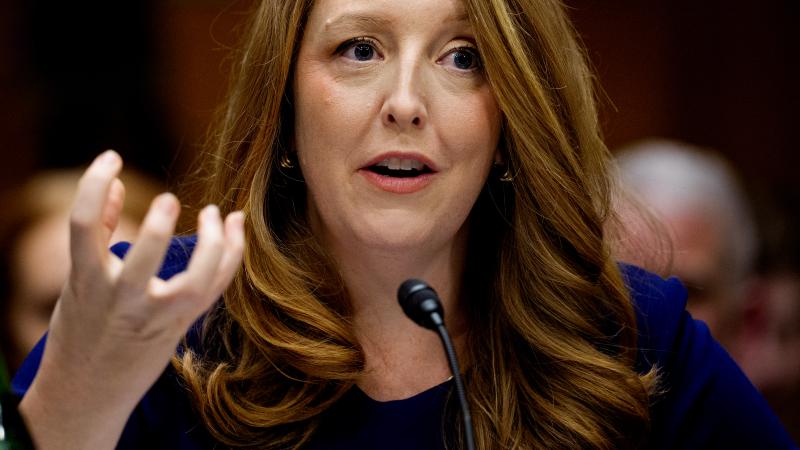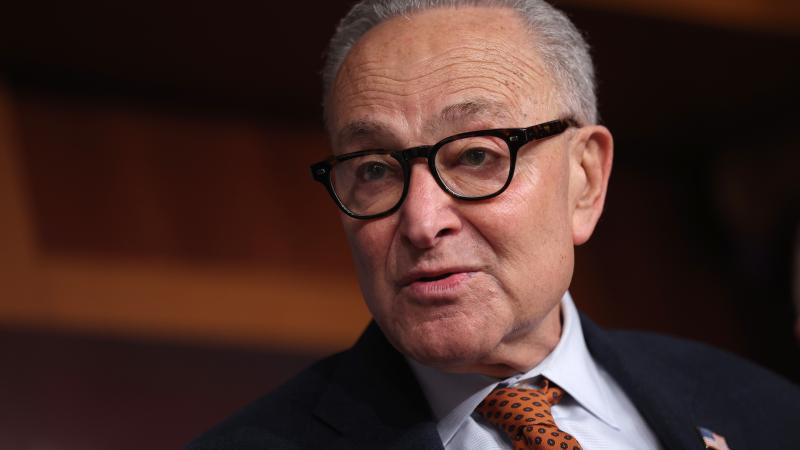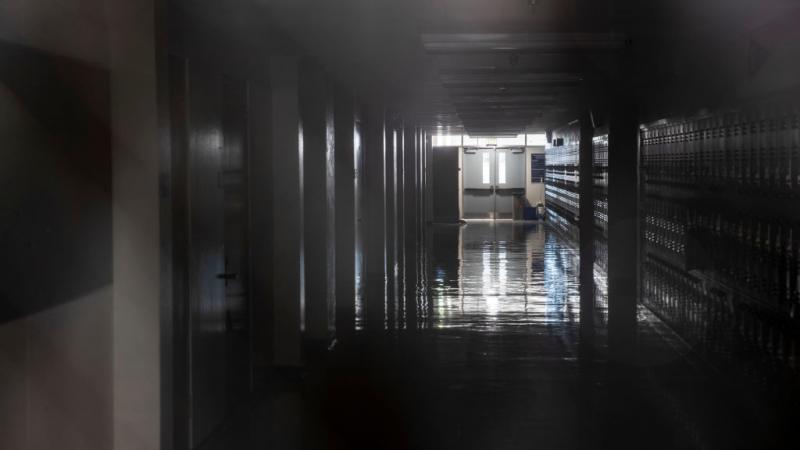As White House touts success of 'Bidenomics', voters struggling to keep pace see bleaker picture
President Biden claims that when he took the oath of office in January 2021, inflation was at 9%. It wasn't even close: he inherited an inflation rate of 1.4%.
The White House has long touted its “Bidenomics” initiatives to restore American economic prosperity and highlighted the improvement of key topline indicators to claim its efforts have been successful.
Administration officials have pointed to an array of data, including the major stock indices, the jobs reports, and inflation rates, as evidence of an improving economic situation. But the message does not appear to have resonated strongly with the American public.
Far from perceiving an economic upturn and feeling optimistic about the nation’s economic future, a majority of Americans appear decidedly convinced that they were better off four years ago, under the prior administration, according to a recent Harvard Center for American Political Studies (CAPS)/Harris survey.
Conducted May 15-16, the survey questioned 1,660 registered voters and has a margin of error of +/- 2.0%.
Current state of the economy
Unemployment rose to 3.9% in April, with the economy adding 175,000 jobs. Consumer prices, meanwhile, rose 0.3%. Inflation, however, dropped from 3.5% to 3.4%. The DOW Jones Industrial Average, moreover, topped 40,000 for the first time this month, marking a significant milestone and handing the White House a rhetorical boon.
The mixed bag of economic data, however, was reflected in the president’s job approval. President Joe Biden’s approval rating on the economy stood at 43%, a modest improvement from the survey’s April iteration, when he earned 42% approval. That figure stands moderately above his average economic approval of 39.9%, according to RealClearPolitics, which includes the Harvard/Harris survey in its average.
Economic perception overall
Voter perception of the economy, meanwhile, deteriorated marginally from the Harvard/Harris survey’s April iteration. In the latest data, 42% of respondents perceived the economy to be “strong,” compared with 58% who deemed it “weak.” In April, those figures stood at 43% “strong" and 57% “weak.”
Optimism on the economy, moreover, appears to have faded, albeit slightly. In the May survey, 34% of respondents said the economy was on the “right track” while 60% said it was on the “wrong track” and 6% were “unsure.”
By party, 59% of Democrats said the economy was on the “right track” while only 28% of independents and 13% of Republicans said the same, reflecting a considerable partisan split in perception of the economy.
The negative perception of economic trends appears in line with a recent Freedom Economy Index survey. Released last week, the survey found that 22% of small businesses said they “definitely” wouldn’t survive another Biden term, while a further 26.2% said they “probably” would not.
At the individual level
Those surveyed were comparably sour when asked about their own economic prospect, with 48% of respondents indicating that their personal financial situation was deteriorating. A further 28% said their situation was improving while 24% said they were “just as well off.” In April, 47% said things were getting worse, while 29% said things were improving and 23% said their situation was unchanged.
Self-assessment of their situation, meanwhile, was generally negative. Overall, 55% of respondents said their personal economic situation was either poor (23%) or fair (33%). In April, the combined total was 56%. A further 31% viewed their situation as good while 14% said it was excellent.
The May data also demonstrated a notable partisan divide on the matter, with 42% of Democrats saying their situation was either fair or poor, while 58% of independents did so, as did 67% of Republicans.
Respondents to the poll evidently see inflation and price increases as the chief source of their economic anxieties, with 35% labeling the issue among their most important. The economy and jobs, more generally, place third with 23% while immigration placed second with 32%. When asked what issue was most important to respondents personally, moreover, 41% said inflation, with immigration placing a distant second at 16%.
The survey further asked if voters perceived price hikes as being under control or if they though the increases were poised to remain.
An overwhelming 71% said that inflation and price increases had “proven sticky and here to stay” [sic]. Twenty-seven percent, meanwhile, said there had been “progress getting them in line and under control.” The Associated Press reported last week that Biden was flatly incorrect when he claimed that he inherited a 9% inflation rate when taking office. In fact, Donald Trump exited the White House with inflation at a paltry 1.4%.
Better off four years ago?
A clear majority of 55% indicated that they approved of former President Donald Trump’s performance as president, including 36% who “strongly” approved. The overall number was unchanged from the April survey. Thirty-two percent “strongly” disapproved of Trump’s tenure while 11% “somewhat” disapproved and 1% were unsure.
Biden’s approval rating, meanwhile, stood firm at 44%, including 23% who “strongly” approved of his performance. Fifty-four percent disapproved of him, including 40% who did so “strongly.”
The former president, for his part, has attempted to seize on his rival’s apparent polling weakness, highlighting poor economic data and attempting to tie those figures to the “Bidenomics” label.
"Gasoline is going way up, energy costs are going way up, and the stock market is, in a sense, crashing," he said last month, outside a Manhattan courthouse. "The numbers are very bad. This is Bidenomics, it's catching up with him. It's lucky that it's catching up before he leaves office, as opposed to after he leaves office. But this is Bidenomics, it's destroying our country at the border, destroying our country with other countries, they no longer respect the United States."
In a one-on-one contest, Trump led Biden 48% to 43% in the Harvard CAPS/Harris survey, with 8% unsure. When forced to choose, Trump led 52% to 48%.
With the introduction of independent presidential candidate Robert F. Kennedy Jr., moreover, Trump led with 43% to Biden’s 39%, and Kennedy’s 12%. Six percent were unsure in that scenario. When forced to choose, however, Trump led with 45% to Biden’s 40% and Kennedy’s 14%.
Trump leads by an average 2.8% in the RealClearPolitics polling average, though that metric also included independent candidate Cornel West and the Green Party’s Jill Stein.
Ben Whedon is an editor and reporter for Just the News. Follow him on X.

